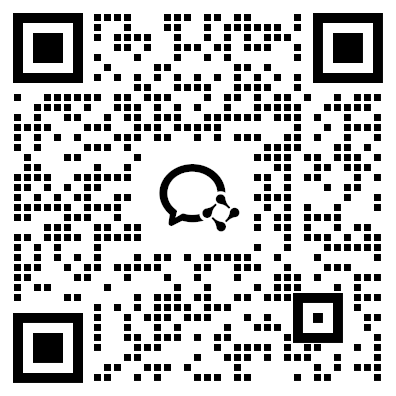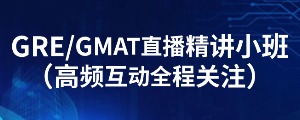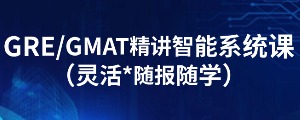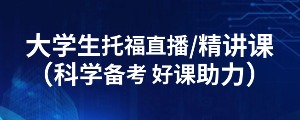选课中心
7099人选课
GMAT公开讲座
0元
GRE公开讲座
0元
一对一体验课
99元
GMAT模考网站
10000人
GRE模考网站
GMAT课程
GRE课程
托福辅导课程
【定制】1v1
私人订制
资料下载
考前冲刺

扫码添加助教
免费领取
备考资料大礼包

扫码关注公众号
GMAT阅读部分,相对来说难度也是比较大的,大家想要提高这部分的分数,在练习的过程中,还是需要进行大量的练习,熟能生巧之后才会让我们更好地掌握GMAT阅读高分的技巧。新东方在线GMAT频道为大家整理了一些模拟练习题,供大家参考练习。
Many United States companies have, unfortunately, made the search for legal protection from import competition into a major line of work. Since 1980 the United States International Trade Commission (ITC) has received about 280 complaints alleging damage from imports that benefit from subsidies by foreign governments. Another 340 charge that foreign companies ―dumped‖ their products in the United States at ―less than fair value.‖ Even when no unfair practices are alleged, the simple claim that an industry has been injured by imports is sufficient grounds to seek relief.
Contrary to the general impression, this quest for import relief has hurt more companies than it has helped. As corporations begin to function globally, they develop an intricate web of marketing, production, and research relationships. The complexity of these relationships makes it unlikely that a system of import relief laws will meet the strategic needs of all the units under the same parent company.
Internationalization increases the danger that foreign companies will use import relief laws against the very companies the laws were designed to protect. Suppose a United States–owned company establishes an overseas plant to manufacture a product while its competitor makes the same product in the United States. If the competitor can prove injury from the imports—and that the United States company received a subsidy from a foreign government to build its plant abroad—the United States company’s products will be uncompetitive in the United States, since they would be subject to duties.
Perhaps the most brazen case occurred when the ITC investigated allegations that Canadian companies were injuring the United States salt industry by dumping rock salt, used to de-ice roads. The bizarre aspect of the complaint was that a foreign conglomerate with United States operations was crying for help against a United States company with foreign operations. The ―United States‖ company claiming injury was a subsidiary of a Dutch conglomerate, while the ―Canadian’’ companies included a subsidiary of a Chicago firm that was the second-largest domestic producer of rock salt. Questions 64–69 refer to the passage above.
64. The passage is chiefly concerned with (主旨)
(A) arguing against the increased internationalization of United States corporations
(B) warning that the application of laws affecting trade frequently has unintended consequences
(C) demonstrating that foreign-based firms receive more subsidies from their governments than United States firms receive from the United States government
(D) advocating the use of trade restrictions for ―dumped‖ products but not for other imports
(E) recommending a uniform method for handling claims of unfair trade practices
65. It can be inferred from the passage that the minimal basis for a complaint to the International Trade Commission is which of the following? (推论)
(A) A foreign competitor has received a subsidy from a foreign government.
(B) A foreign competitor has substantially increased the volume of products shipped to the United States.
(C) A foreign competitor is selling products in the United States at less than fair market value.
(D) The company requesting import relief has been injured by the sale of imports in the United States.
(E) The company requesting import relief has been barred from exporting products to the country of its foreign competitor.
66. The last paragraph performs which of the following functions in the passage? (结构) (A) It summarizes the discussion thus far and suggests additional areas for research. (B) It presents a recommendation based on the evidence presented earlier.
(C) It discusses an exceptional case in which the results expected by the author of the passage were not obtained.
(D) It introduces an additional area of concern not mentioned earlier.
(E) It cites a specific case that illustrates a problem presented more generally in the previous paragraph.
67. The passage warns of which of the following dangers? (细节)
(A) Companies in the United States may receive no protection from imports unless they actively seek protection from import competition.
(B) Companies that seek legal protection from import competition may incur legal costs that far exceed any possible gain.
(C) Companies that are United States owned but operate internationally may not be eligible for protection from import competition under the laws of the countries in which their plants operate.
(D) Companies that are not United States owned may seek legal protection from import competition under United States import relief laws.
(E) Companies in the United States that import raw materials may have to pay duties on those materials.
68. The passage suggests that which of the following is most likely to be true of United States trade laws? (推论) (A) They will eliminate the practice of ―dumping‖ products in the United States.
(B) They will enable manufacturers in the United States to compete more profitably outside the United States.
(C) They will affect United States trade with Canada more negatively than trade with other nations.
(D) Those that help one unit within a parent company will not necessarily help other units in the company.
(E) Those that are applied to international companies will accomplish their intended result.
69. It can be inferred from the passage that the author believes which of the following about the complaint mentioned in the last paragraph? (推论)
(A) The ITC acted unfairly toward the complainant in its investigation.
(B) The complaint violated the intent of import relief laws.
(C) The response of the ITC to the complaint provided suitable relief from unfair trade practices to the complainant.
(D) The ITC did not have access to appropriate information concerning the case.
(E) Each of the companies involved in the complaint acted in its own best interest.
以上就是为大家整理的“GMAT阅读模拟题练习十三”,更多精彩内容敬请关注新东方在线GMAT频道!
| GMAT直播VIP小班 | GMAT直播精讲班 | GMAT录播课 |
| (VIP小班/全科班+1对1) | (全科精讲/单项备考) | (全科班/单项班) |
| 72.5课时 ¥18800 | 61课时 ¥7796 | 134课时 ¥14680 |

 资料下载
资料下载
新东方GMAT佛脚词汇1.0版本
发布时间:2023-06-30添加新东方美研助教号
回复【资料】获取
新东方GMAT数学500题资料下载
发布时间:2023-05-26添加新东方美研助教号
回复【资料】获取
新东方GMAT800题资料下载
发布时间:2022-05-21添加新东方美研助教号
回复【资料】获取
1000句GMAT真实句子改错问题
发布时间:2022-04-17添加新东方美研助教号
回复【资料】获取
2024杨鹏阅读难句(GMAT+GRE)教程
发布时间:2022-04-17添加新东方美研助教号
回复【资料】获取
新东方GMAT数学500题(解析及答案)
发布时间:2019-11-27添加新东方美研助教号
回复【资料】获取
新东方GMAT800题(逻辑+语法+阅读)
发布时间:2019-11-27添加新东方美研助教号
回复【资料】获取
新东方GMAT佛脚词汇1.0版本
发布时间:2019-11-27添加新东方美研助教号
回复【资料】获取
GMAT词汇/长难句/语法资料大全
发布时间:2019-11-27添加新东方美研助教号
回复【资料】获取
GMAT语文考试圣经(Bible)电子版
发布时间:2019-11-27关注新东方在线美研订阅号
回复【GMAT】获取
GMAT推理圣经PDF电子版
发布时间:2019-11-27添加新东方美研助教号
回复【资料】获取
GMAT考试OG五个版本题号对照表
发布时间:2019-11-27添加新东方美研助教号
回复【资料】获取
GMAT Ultimate Grammar电子书籍PDF
发布时间:2019-11-27添加新东方美研助教号
回复【资料】获取

添加美研助教号,
回复【GMAT】获取备考必看资料包

 推荐阅读
推荐阅读
新东方在线GMAT频道为大家带来GMAT阅读复习的五大步骤,希望对大家GMAT备考有所帮助。更多精彩尽请关注新东方在线GMAT频道! 1:原来
新东方在线GMAT频道为大家带来GMAT阅读背景的培养,希望对大家GMAT备考有所帮助。更多精彩尽请关注新东方在线GMAT频道! 一、经济学
新东方在线GMAT频道为大家带来GMAT阅读复习效率不高怎么办,希望对大家GMAT备考有所帮助。更多精彩尽请关注新东方在线GMAT频道! 建
新东方在线GMAT频道为大家带来GMAT阅读提高速度的根本方法,希望对大家GMAT备考有所帮助。更多精彩尽请关注新东方在线GMAT频道! 1
新东方在线GMAT频道为大家带来GMAT阅读如何避免错误,希望对大家GMAT备考有所帮助。更多精彩尽请关注新东方在线GMAT频道! 要避免GMA
新东方在线GMAT频道为大家带来GMAT阅读技巧的提升,希望对大家GMAT备考有所帮助。更多精彩尽请关注新东方在线GMAT频道! GMAT阅读推
新东方在线GMAT频道为大家带来GMAT阅读备考的注意事项,希望对大家GMAT备考有所帮助。更多精彩尽请关注新东方在线GMAT频道! GMAT阅
新东方在线GMAT频道为大家带来GMAT阅读怎么提高自己的能力,希望对大家GMAT备考有所帮助。更多精彩尽请关注新东方在线GMAT频道! 建
新东方在线GMAT频道为大家带来GMAT阅读长句子的备考,希望对大家GMAT备考有所帮助。更多精彩尽请关注新东方在线GMAT频道! 1 首先
新东方在线GMAT频道为大家带来GMAT阅读水平怎么提高,希望对大家GMAT备考有所帮助。更多精彩尽请关注新东方在线GMAT频道! 下面就来


 GRE/GMAT直播精讲小班
GRE/GMAT直播精讲小班
 GRE/GMAT精讲智能系统课
GRE/GMAT精讲智能系统课
 托福直播/精讲课(30天/60天)
托福直播/精讲课(30天/60天)
 资料下载
资料下载
添加新东方美研助教号
回复【资料】获取
添加新东方美研助教号
回复【资料】获取
添加新东方美研助教号
回复【资料】获取
添加新东方美研助教号
回复【资料】获取
添加新东方美研助教号
回复【资料】获取
添加新东方美研助教号
回复【资料】获取
添加新东方美研助教号
回复【资料】获取
添加新东方美研助教号
回复【资料】获取
添加新东方美研助教号
回复【资料】获取
关注新东方在线美研订阅号
回复【GMAT】获取
添加新东方美研助教号
回复【资料】获取
添加新东方美研助教号
回复【资料】获取
添加新东方美研助教号
回复【资料】获取

 阅读排行榜
阅读排行榜
 相关内容
相关内容